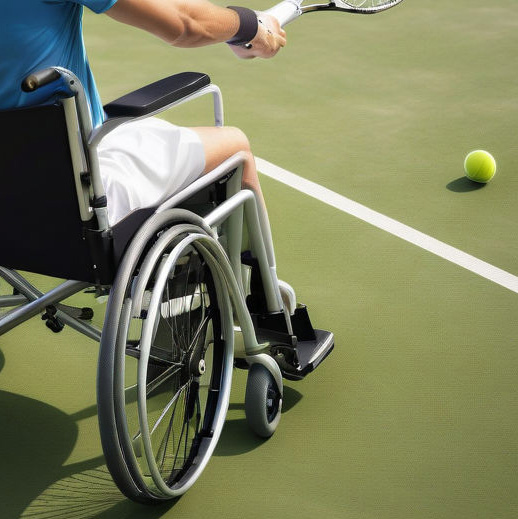England’s footballers return to their multi-million-pound day jobs, while Wimbledon champions pocket £2.7 million. But who is talking about the disability pay gap in sport?
Let’s put the football to one side for a moment. I would like to extend my congratulations to 26-year-old Brit Alfie Hewett, who this weekend lifted not one but two Grand Slam titles at Wimbledon.
It was certainly a big sporting weekend in Britain and, in the aftermath, media attention has continued to focus on the almost victorious England football team.
But there is one place where we did actually beat Spain.
Norwich-born Alfie defeated Spain’s Martin de la Puente in straight sets in the men’s wheelchair singles final on Sunday.
A few hours later, he and Scotland’s Gordon Reid lifted the wheelchair doubles trophy, making Hewett only the second man in history to win both singles and doubles at all four Grand Slam tournaments.
With a total of 30 Grand Slam titles and three Paralympic silver medals to his name, this young man is one of the country’s most successful sports stars and deserves tremendous respect. He also deserves fair and equitable pay.
While the gender pay gap at Wimbledon was closed in 2007, with male and female champions finally being placed on an equal prize footing, a massive disability pay gap still prevails.
Carlos Alcaraz and Barbora Krejcikova each won a staggering £2.7 million for winning the men’s and women’s singles titles, while the men’s doubles winners, Henry Patten and Harri Heliovaara, shared a pot of £650K
For both of his titles combined, Alfie Hewett went home with £79K
Lawn Tennis Association officials will no doubt argue that the disparity simply reflects the different public profiles of able-bodied and disability tennis, and therefore their ability to generate revenue through sponsorship, media rights and ticket sales.
But surely there is a scope for a fairer deal than the enormous pay gap that currently exists.
Just consider Hewett’s achievements – not just his multiple titles but his long battle with Perthes Disease, which has left him using a wheelchair since he was six years old. In terms of determination and dedication, there can be few better role models for young people.
His on-court successes and the reward he receives for them are simply not in balance when compared to his able-bodied counterparts. Quite apart from his eye-watering prize money, Alcaraz can list Nike, LVMH, Rolex, BMW, Babolat, Calvin Klein and ISDIN sunscreen among his sponsors.
The good news is that Lexus have clearly seen the value in Alfie Hewett, making him a UK ambassador in April this year and providing him with an RX 450h+ hybrid SUV to assist him in travelling to training and matches.
Does this signal the start of a journey that will raise the profile of wheelchair tennis, and disability sport as a whole?
I really hope so, but I’m not holding my breath.






